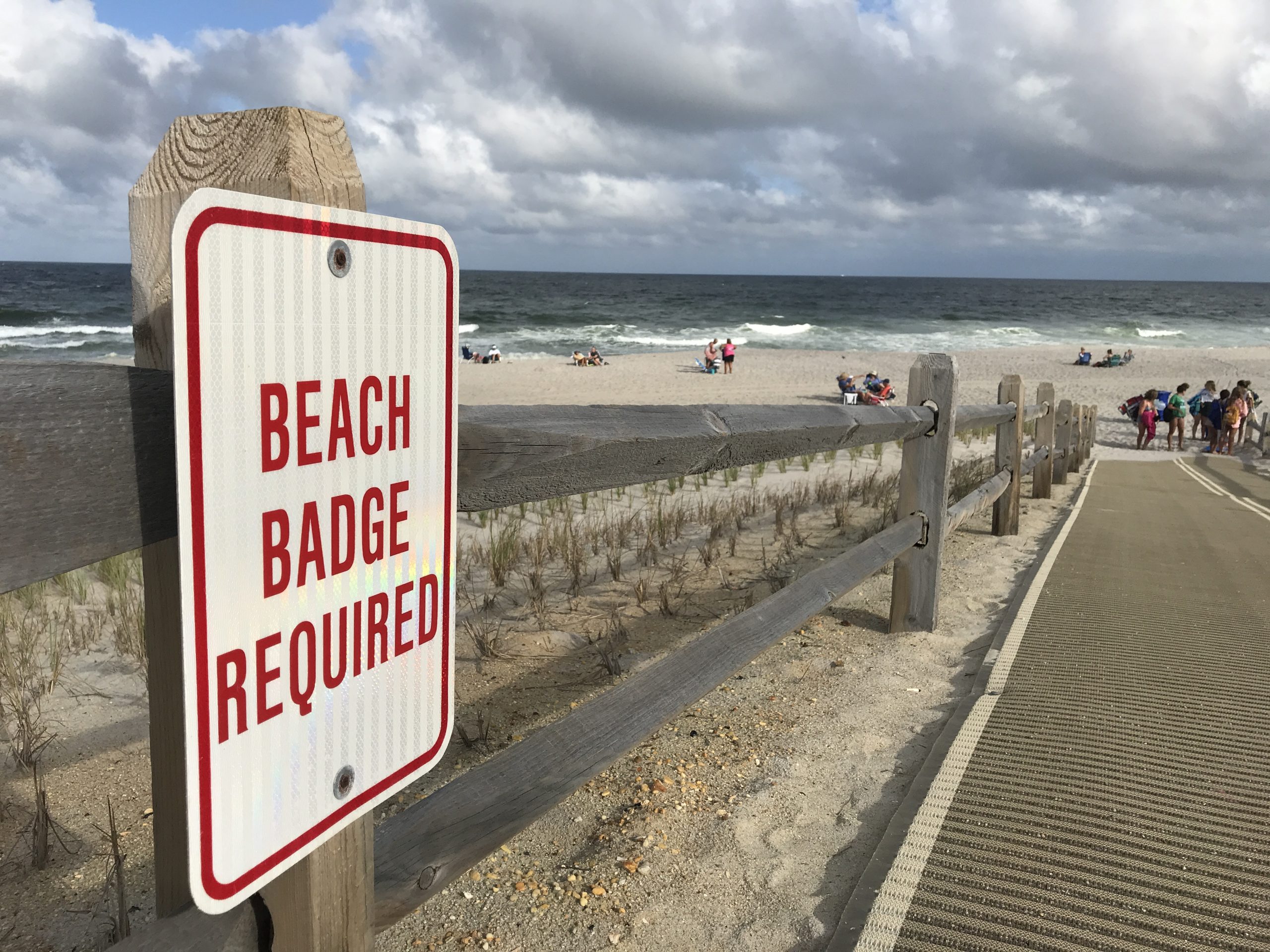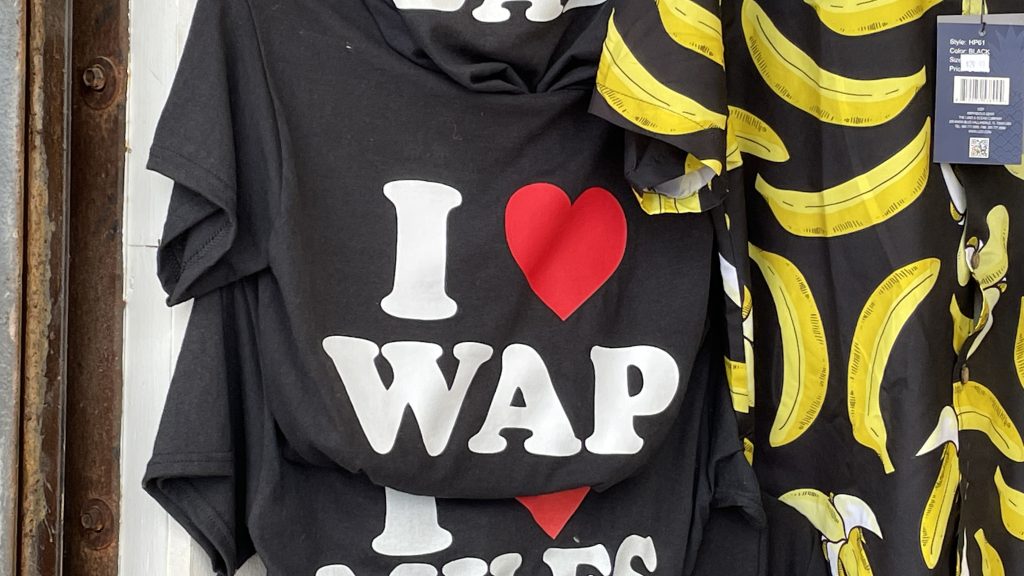
Tasteless merchandise being sold on the Seaside Heights boardwalk is raising eyebrows, July 2022. (Photo: Daniel Nee)
(This story contains strong language.)
Seaside Heights residents this week renewed calls for the borough to crack down on the presence of vulgar text on articles of clothing and other souvenirs being displayed in plain sight on the boardwalk, saying the foul and often hyper-sexualized language does not comport with the borough’s goal to become a family-oriented resort community.
While both officials and residents have expressed disapproval of the content over the years, the borough has always been hesitant to pass ordinances that prohibit the vulgarities in fear of running afoul of the constitutional right to freedom of speech. The issue has occasionally been raised over the years at meetings of the borough council, however several residents and elected officials expressed their displeasure over the displays, which are often printed on tee shirts for sale at retail stores along the boardwalk.
“Can we, somehow, pass an ordinance not to have this filth visible on the boardwalk?” asked resident Lisa Franciosi. “I’m walking with my six-year-old niece down the boardwalk and she asks me, ‘What does WAP mean?’”
The acronym WAP stands for “wet-ass pussy” and is also the title of a hit song by rapper Cardi B. Other tee shirts observed on display along the boardwalk include other vulgar acronyms such as MILF and DILF (“mom/dad I’d like to f*ck”), as well as references to genitalia, sometimes with a racial component involved. Some stores also sell politically-charged tee shirts with expletives referencing presidential candidates.
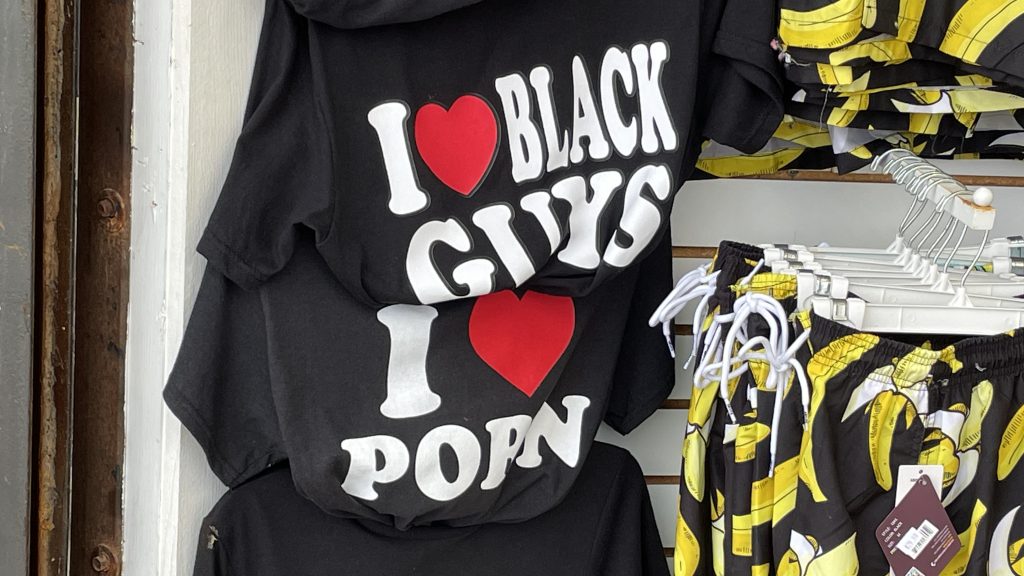
Tasteless merchandise being sold on the Seaside Heights boardwalk is raising eyebrows, July 2022. (Photo: Daniel Nee)
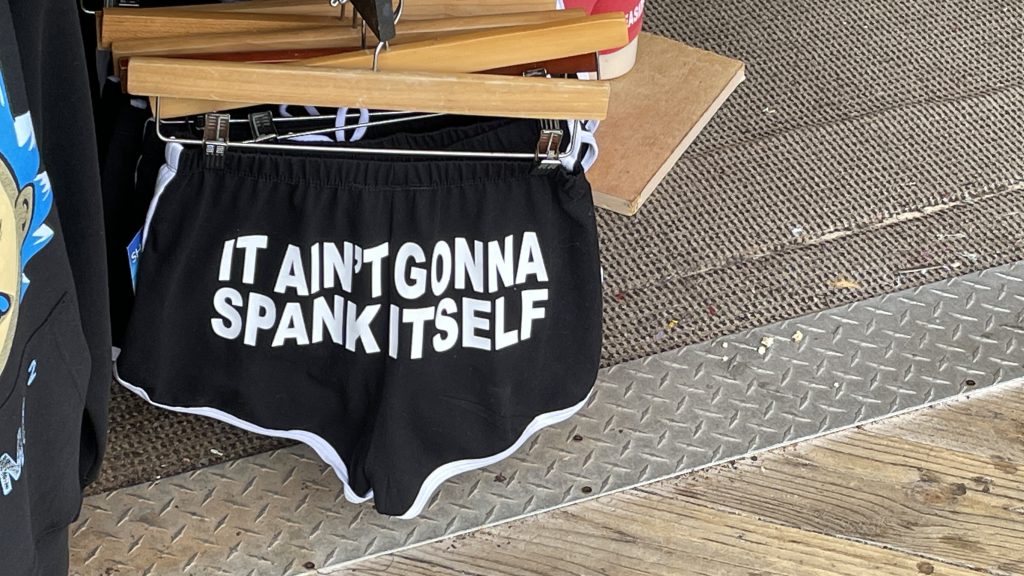
Tasteless merchandise being sold on the Seaside Heights boardwalk is raising eyebrows, July 2022. (Photo: Daniel Nee)
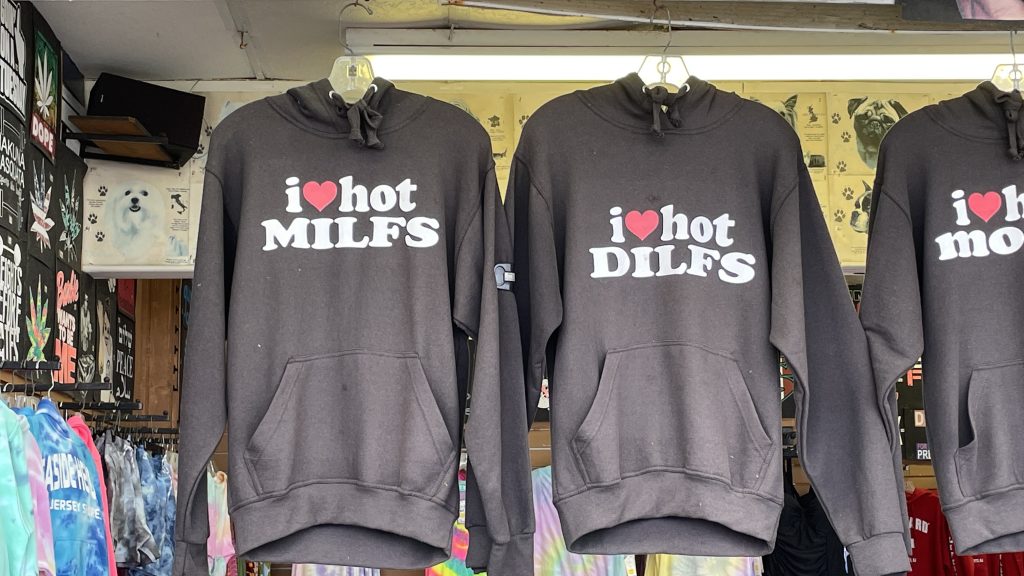
Tasteless merchandise being sold on the Seaside Heights boardwalk is raising eyebrows, July 2022. (Photo: Daniel Nee)
Residents say the shirts – on public display – are inappropriate for an area where young children visit the beach and play wholesome boardwalk games, and simultaneously exacerbate low-brow stereotypes about Seaside Heights as a community. Officials say they have asked business owners to, at least, remove the items from obvious view facing the boardwalk, however they often reappear a short time later.
“I personally went around and talked to a lot of these t-shirt people and asked them to get these things out of here,” said Councilman Harry Smith. “They take them down and they put them back up again.”
Franciosi said an ordinance would fix the problem.
“If there’s an ordinance, there’s no excuse,” she said. “They get fined. It’s not that they can’t sell them, but why does it have to be visible from the boardwalk?”
Borough Attorney Robin La Bue said the borough often has to balance free speech issues with the right of others to enjoy the boardwalk. The borough has had to allow people ranging from controversial religious preachers, to political groups, to buskers performing for cash on the boardwalk despite pushback from some residents and visitors.
“It’s a first amendment issue, so we can’t pass a law saying, ‘you can’t say DILF on a tee shirt,'” said La Bue. “It’s just like whatever political signs are out there. These are just words, and kids do ask what ‘DILF’ means, and parents have to come up with creative solutions to that.”
Borough Administrator Christopher Vaz said that while the borough would not be able to prohibit certain items from being sold, some towns have ordinances on the books regulating businesses such as adult book stores or – at least in the past – video rental stores that required explicit materials to be out of public view from the outside.
“With adult bookstores, or stores that sell adult magazines, you can have an ordinance saying it has to be in the back of the store in a place where minors can’t see,” said Vaz. “Maybe we can have an ordinance like that for tee shirts.”
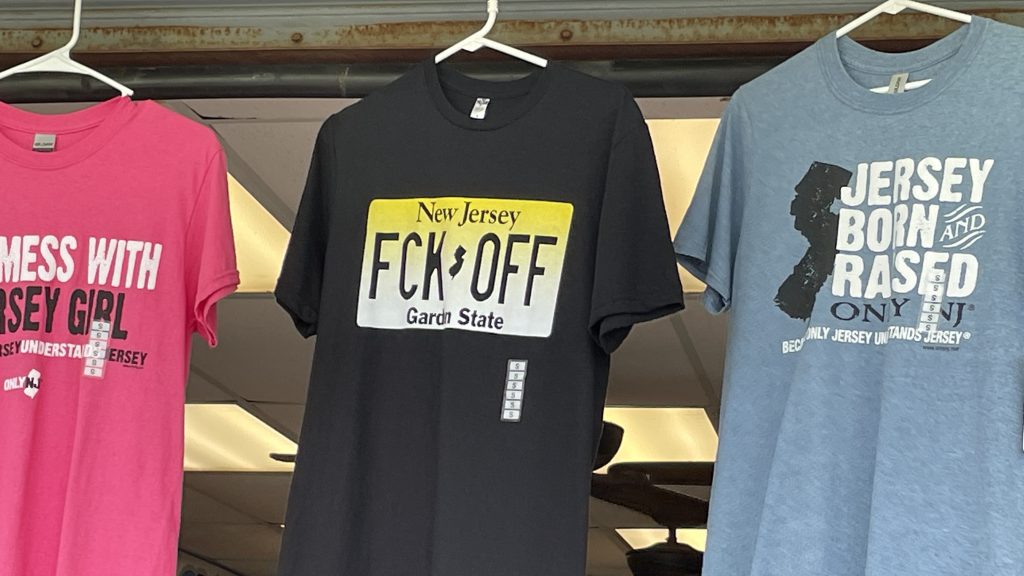
Tasteless merchandise being sold on the Seaside Heights boardwalk is raising eyebrows, July 2022. (Photo: Daniel Nee)
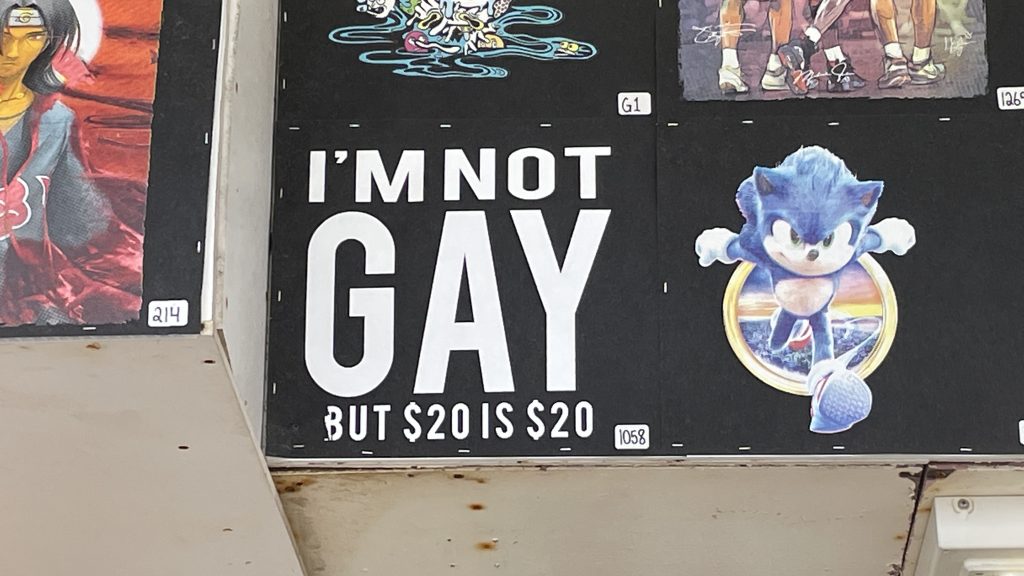
Tasteless merchandise being sold on the Seaside Heights boardwalk is raising eyebrows, July 2022. (Photo: Daniel Nee)
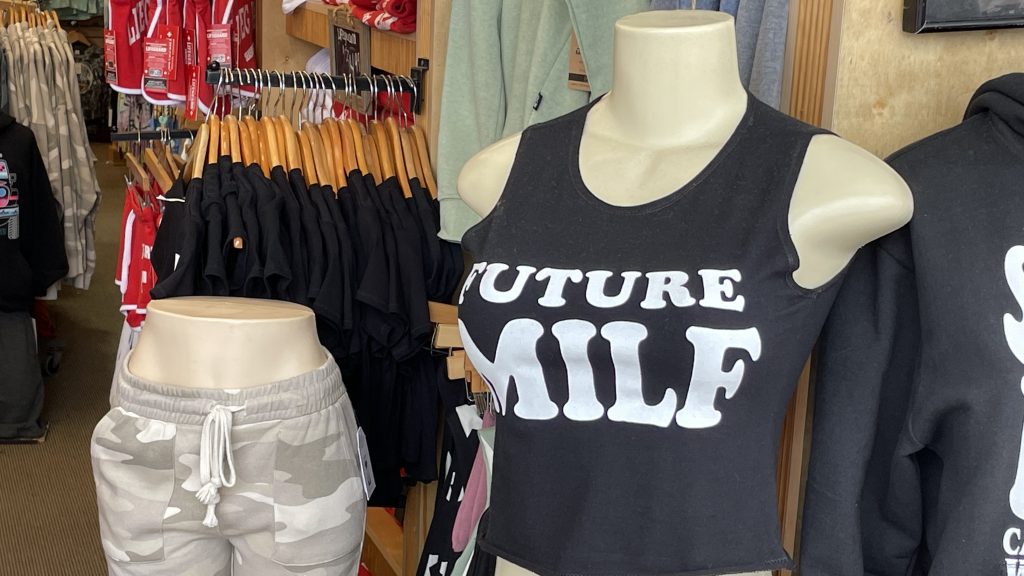
Tasteless merchandise being sold on the Seaside Heights boardwalk is raising eyebrows, July 2022. (Photo: Daniel Nee)
Vaz asked La Bue to conduct research into the matter and provide a report to the council as to what, if any, options could be legally adopted and enforced. An ordinance, however, may not change what has come down to a change in societal acceptance of what was once considered taboo.
“We have stores here and we know some of them are selling the stuff, but a lot of the kids are just coming with the tee shirts from somewhere else,” said Vaz. “They’re already putting them on when they wake up in the morning.”
Several council members, as well as Mayor Anthony Vaz, said business owners often comply with requests to remove vulgar items from public view, however the “dirty” tees, shorts and other items inevitably find their way back to the front.
“We’ve talked to several of the owners, and they move them, they do,” said Vaz. “But then they always seem to go back.”

Advertisement

Seaside Heights & Seaside Park
In Seaside Heights, A $50M Flagship Building Rises Over the Boulevard in a Famed Location

Police, Fire & Courts
Ocean County Sheriff Establishes Drone Command Center in Seaside Heights Amid New Video

